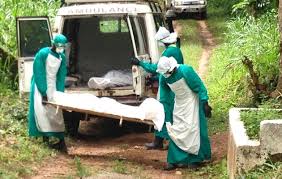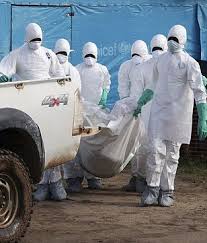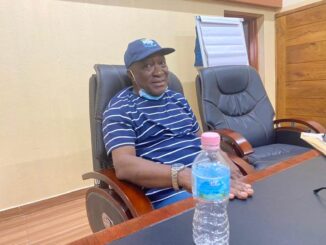
UNDP helping to coordinate payments to thousands of frontline responders
New York, 1 December 2014 – To strengthen the battle against Ebola, the United Nations Development Programme (UNDP) is working with the authorities in Guinea, Liberia and Sierra Leone to coordinate payments for thousands of treatment centre staff, lab technicians, contacts tracers and burial teams.
“Success in the response, down to the district level, depends on these women and men who are risking their lives every day to fight the disease,” said Helen Clark, the Administrator of UNDP.
“Paying them in a timely manner is crucial. That helps to sustain them and their families, and it ensures a steady inflow of personnel who can help stop this disease outbreak,” she said.
Recognising the commitment of the respective national authorities leading this response, UNDP, working with the UN Mission for Ebola Emergency Response (UNMEER), is tracking payments and improving existing systems through which payments are being delivered to the Ebola response workers.
The objective is not only to support governments – which handle payrolls – and partners to continue to pay the workers’ salaries and incentives on time, but also to strengthen and develop systems that will expand access to affordable financial services after this medical emergency is over.
Reinforcing existing services can help expand the creation of markets, improve poverty reduction and resilience, boost economic growth and recovery, develop livelihoods of people with low incomes and empower women over time.
In Sierra Leone, UNDP technical advisors already assisted the government with two nationwide payments in November of more than 12,000 Ebola response workers, while in Guinea and Liberia, efforts are underway to check lists of workers and reinforce existing payment systems.
Beyond the immediate response, UNDP will also make welfare payments to vulnerable communities affected by the disease, focusing on survivors and families who lost relatives or are helping orphaned children, as well as groups who lost their livelihoods as a result of the crisis.
The socio-economic impact of the Ebola medical emergency will be felt long after the crisis has ended. It is already affecting the means of making a living of millions of the poorest and most vulnerable people in these countries, as well as the ability of governments to provide basic services to their populations.
As part of the broader UN family, UNDP is working to identify and trace people with Ebola; assisting with social mobilization and community engagement; strengthening security agency capacity to prevent further spread of the disease; assessing the socio-economic impact of the outbreak and working with governments on recovery plans.
For more information:
Nicolas Douillet, Communications Specialist, UNDP, +1.212.906.5937,nicolas.douillet@undp.org
Sandra Macharia, Regional Communications Advisor, UNDP, +1.212.906.5377,sandra.macharia@undp.org
Visit: www.undp.org/ebola On Twitter, @UNDP and #EbolaResponse
_____________________________________________________________




Leave a Reply